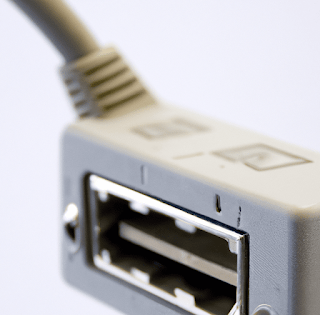Computer ports are the physical interfaces on computer devices that allow to connect different types peripherals such as mouse, keyboard, or external hard drive. In this article, we'll know the different types of computer ports and where they used for.
USB (Universal Serial Bus) Port:
USB is widely used port on modern computers. USB supports various type of devices including mouse, keyboards, external hdd, external ssd, and flash drives.
There are three types of usb ports: USB type A, B, and C. type A is the standard port in rectangular shaped, type b port is the square shaped generally used in the printers, and type c is the newest type port that supports faster data transfer speeds and now became the standard data transfer and charging port in many countries.
HDMI (High Definition Multimedia Interface) Port:
HDMI port is used to connect a computer or laptop to external display like monitor, television. It supports high-quality audio and video transmission and it is commonly used for gaming, multiple monitor setup, tv and home theater setups.
VGA (Video Graphics Array) Port:
VGA port is an analog port that is widely used in the past to connect computer motherboard to a display. While it has been already replaced by HDMI, but VGA port still found on some old motherboard and monitors.
DVI (Digital Visual Interface) Port:
DVI port is generally used to connect a computer to a display, It is a digital port. It supports high-quality video transmission and is commonly found on older computers and displays.
Ethernet Port:
Audio Ports:
Speakers, microphones, and other audio equipment connect to computers via audio ports. These are classified into two types: analogue and digital. Analog ports are commonly color-coded and used for speakers, but digital ports are used for digital audio equipment including sound cards.
Firewire Port:
In conclusion, there are several types of computer ports that serve different purposes and support different types of devices. Understanding the different types of ports and what they are used for can help you make informed decisions when purchasing peripherals or upgrading your computer.
Do not forget to share your opinion in the comments section and also join us on the social networking sites to stay connected with us.



.jpg)



